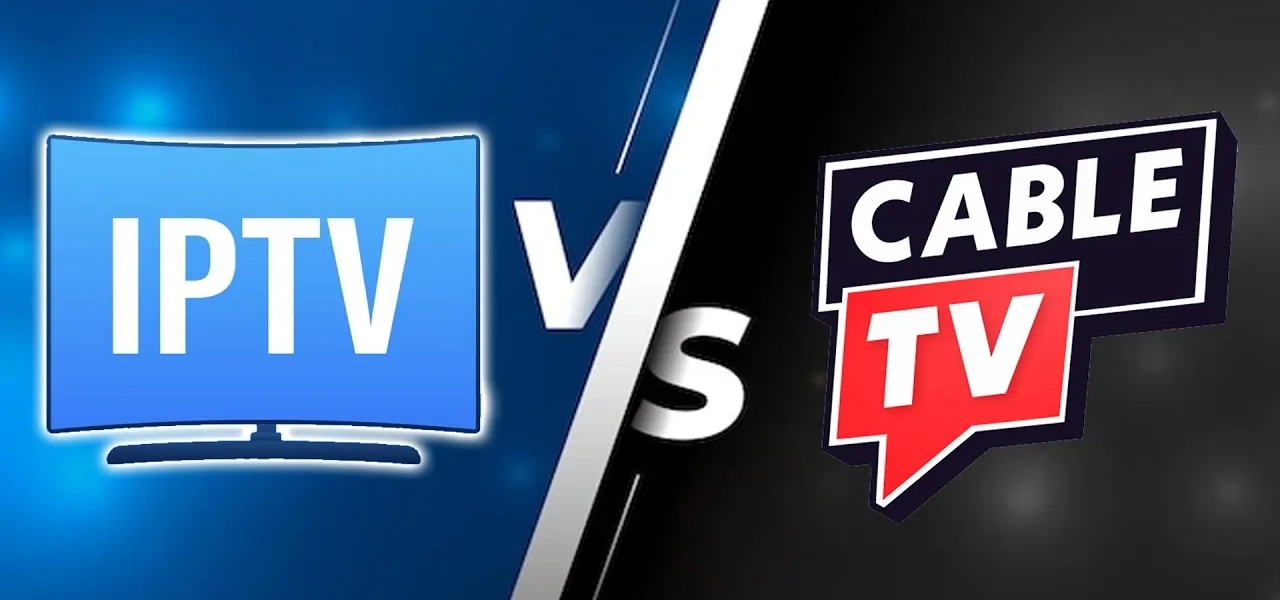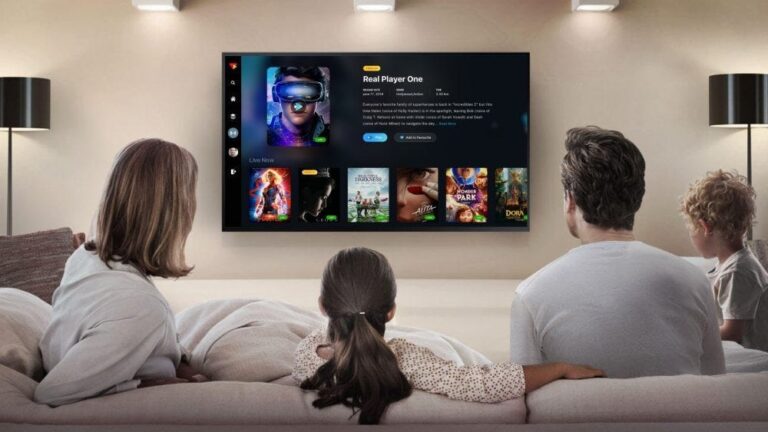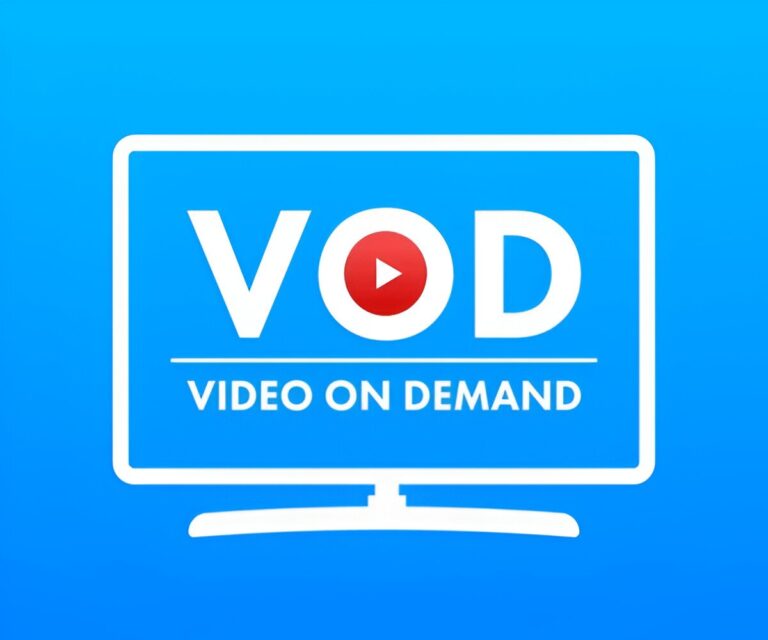Which is better? IPTV vs Cable TV
Enjoy watching the Best IPTV Service with diverse channels and premium quality!

Table of Contents
The way we consume entertainment is constantly evolving. Traditional cable TV, once the undisputed champion, now faces a challenger in the ring: IPTV (Internet Protocol Television). However, as both provide access to channels and shows, which of them is deserving enough to earn a reasonable space inside your house? The great battle of IPTV Vs. Cable TV can now be analyzed and let us help bring out the winner best fit for your viewing requirements.
Let The Battle Commence; IPTV and Cable TV
IPTV
With modern advancements, now television is streamed through the broadband internet connection rather than the cable wires. There’s nothing more appealing than a variety of satellite channels and movies accessible at once without any satellite decoders or contracts.
Cable TV
The ever-winning contestant, cable television, delivers programming to customers through coaxial cables. Offering a multiplicity of channels, it is usually associated with exorbitant monthly bills, least convenience, and tiresome agreements.
The Competition for Your Entertainment Dollar: Round 1 – Cost
- IPTV:In most cases, traditional cable subscription is more costly than subscribing to IPTV services. Reputable providers such as IPTVRapidly present subject packages at more than affordable costs as compared to cable. More so, many of the IPTV services do not require any contracts which means that you can easily cancel whenever you wish.
- Cable TV:These definitely have a reputation for billing people excess hidden costs, leasing out equipment, and constant price hikes. In addition, one also had to endure long commitments that entangled one in a perspective that they had outgrown.
- Winner: IPTV – There is no beating about the bush, when inexpensive entertainment is the subject, IPTV draws a solid uppercut, out of their range of pricing.
Round 2 – Channel Variety and Content Freedom
- IPTV: Most IPTV providers claim to have an enormous number of channels, often more than what is available through cable television. This includes overseas channels, sports channels, and a larger array of specialist content to suit different tastes. Furthermore, it is common for IPTV to have a very large library of titles for every user, making it possible to view films and series whenever necessary.
- Cable TV: Even though cable television provides quite a range of channels, it may lack the targeted and specialized channels of an IP TV network. The limited availability of any on demand tv also affects your viewing liberty.
- Winner: IPTV – With an extensive variety of channels to choose from as well as on-demand contents, IPTV provides a better and more flexible viewing option.
Round 3 – Flexibility and User Experience
- IPTV: The major strong point of IPTV is the flexibility it offers. You can view the content on different devices such as Smart TVs, Fire Sticks, cell phones, and tablets. You will not be constrained in one area where the cable box is located. Also, one day without many annoying cancellation procedures and without wasting much time switching to other cable service’s providers means of services, is another plus.
- Cable TV: Cable TV limits viewers to their approved set-top boxes, thus limiting flexibility. A provider change usually requires complex processes and the return of equipment.
- Winner: IPTV – Because it offers multi-device access and fast provider transition, IPTV enables you to watch whenever and wherever you wish.
Round 4 – Reliability and Legal Considerations
- IPTV: The level of quality and reliability of some IPTV services is exceptional, while others will have issues with buffering or downtime from time to time. Here at IPTVRapidly, we have worked tirelessly to make sure that there are no server downtimes and even during peak hours, every spot has support and assistance. Nonetheless, it is vital to select a trustworthy IPTV service provider in order to avoid legal issues.
- Cable TV: Besides, the service offered by the cable television is mostly stable and dependable. Even so, this cannot prevent the occurrence of service disruptive devices or conveniences pa customer service may be a struggle.
- Split Decision: – there is no doubt that cable television is more reliable than of-course most IPTV services, however considering an IPTV service such as IPTVRapidly, reduces that disparity significantly. Regarding legal issues, always make sure to vet the contents sources of the providers, so that you do not subscribe to any illegal service.
The Last Decision of All: There is a Champ at Last
After a well-fought battle, IPTV emerges as the champion for many viewers. Its affordability, diverse channel selection, flexibility, and on-demand freedom make it a compelling alternative to traditional cable TV. However, choosing a reliable IPTV service provider is crucial.
Why Choose IPTVRapidly?
At IPTVRapidly, we understand your desire for high-quality, hassle-free entertainment. We offer:
- Low-Cost Subscriptions: Get to choose from different subscriptions at affordable rates.
- Extensive Channel Selection: Subscribers have access to huge range of national and international channels, sports channels and even pay per view movies.
- Constant Dependability: Our first focus is the stability of the servers since we are serving very high streaming.
- Multi-Device Compatibility: Enjoy watching on Smart TV, Fire Stick, smartphone and tablet.
- Exceptional Customer Support: We have a team that is ready to help you out all the time.
Conclusion
IPTV and cable TV have their respective pros and cons. IPTV is best suited for people who value flexibility, content on demand, and using many devices. Moreover, it is usually less expensive and more versatile. On the downside, it is internet conscious and thus can ruin the enjoyment of the viewer if the connection is poor.
In contrast to this, cable television is associated with stable services and a variety of channels across the board, which is perfect for customers who want guaranteed services and many channels available. Cable television is usually pricier than IPTV and has limited viewing possibilities, as well as device compatibility.
In the end, an individual’s requirements and preferences as well as the existing environment will dictate which option-iptv or cable, would be best suited for them.
FAQs
What is the main difference between IPTV and cable TV?
The main difference will be that IPTV uses web as a medium for broadcasting content while cable television uses coaxial cables. IPTV is more flexible with regards to on demand services and cable television is more reliable with its range of channels and picture quality.
Can I use IPTV without an internet connection?
No, it wouldn’t be possible to watch IPTV without the internet as it is a form of television that works through the internet. Whereas in cable tv, there is no needy of internet as they use a cable network only.
Which is more cost-effective: IPTV or cable TV?
Usually both services are affordable but IPTV is less costly because it has versatile pay plans and does not have a lot of equipment unlike Cable television. Cable television is relatively expensive especially when there are extra set top boxes and subscription to some premium channels.
Does IPTV offer live TV?
Just as cable TV does, IPTV also has live TV channels, as well as the additional on-demand content, and interactive capabilities.
Is 4K content available on IPTV and cable TV?
IPTV provides 4K streaming, but only if a high-speed internet connection is available. 4k content is hardly available on IPTV as they mostly provide HD channels.



